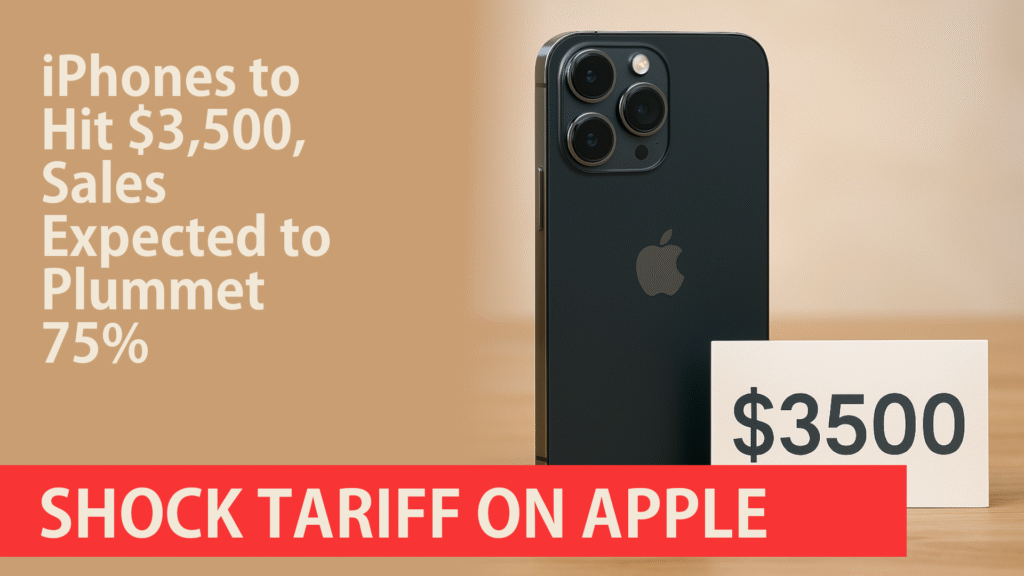
In a stunning move sending shockwaves through the tech industry and global markets, the Trump administration has imposed a 40% tariff on all Apple products imported into the United States. The decision, framed as part of an aggressive new trade strategy to incentivize domestic tech manufacturing, has sparked immediate controversy and investor panic.
Apple, which relies heavily on overseas manufacturing—particularly in China and Southeast Asia—responded within hours of the announcement, warning that consumer prices on key products such as the iPhone could soar to nearly $3,500 as a result.
“This tariff places an extraordinary burden on American consumers and businesses,” an Apple spokesperson said in a statement. “We are evaluating all options, including potential shifts in supply chain logistics, but the impact will be severe and immediate.”
Sales Collapse Projected
Leading analysts from MorganTech and DigitalBridge Research predict that iPhone sales in the U.S. could plummet by as much as 75% within the next year. MacBooks, iMacs, and iPads are expected to suffer a similar fate.
“Consumers simply won’t pay $3,000 to $4,000 for a phone when high-quality Android devices are available for a fraction of that price,” said Ava Raman, Senior Analyst at DigitalBridge. “Apple is in trouble—not just from a pricing standpoint, but also from a brand loyalty perspective.”
The market responded swiftly: Apple’s stock dropped 19% by midday Friday, wiping over $400 billion off its market capitalization in just a few hours. Supply chain partners including Foxconn, TSMC, and Pegatron also saw double-digit stock declines in overnight Asian markets.
Political Fallout and Market Backlash
President Trump defended the move in a press conference Friday morning, saying, “It’s time we bring tech manufacturing back home where it belongs. We want American iPhones, not Chinese iPhones.”
Critics, however, say the policy could backfire.
“This doesn’t just hurt Apple—it hurts consumers, small businesses, and U.S. competitiveness in tech,” said Senator Laura Haynes (D-CA). “Apple employs over 2 million Americans directly and indirectly. This tariff could trigger mass layoffs and a serious downturn in the tech sector.”
Consumers Already Seeking Alternatives
Social media platforms were flooded with reactions under trending hashtags like #iPhoneExodus and #$3500Phone. Early signs suggest that consumers are flocking to explore alternatives, including Samsung, Google Pixel, and even upstart Chinese brands like Xiaomi and OnePlus, which may now have a major opening in the U.S. market.
“No way I’m paying $3,500 for a phone,” tweeted @techie_travels. “Time to see what Android’s up to.”
What’s Next for Apple?
While Apple has made strides to increase production in India and explore manufacturing in Vietnam and even the U.S., experts warn that restructuring its global supply chain could take years.
“There’s no quick fix,” said Raman. “Apple’s business model was built on efficient, globalized production. A 40% tariff is a wrecking ball through that system.”
With its flagship products now priced out of reach for many and competitors circling, Apple faces what may be the most serious commercial crisis in its history.